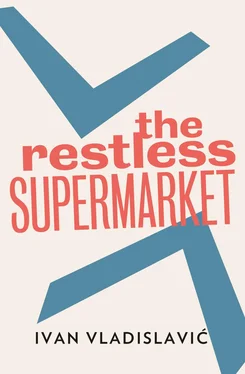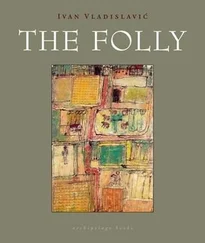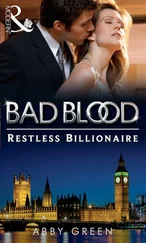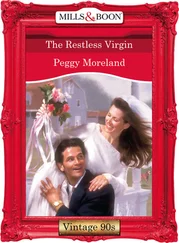I wrote in turn, and at mounting expense, to the Publishers’ Association, the larger publishing houses, the Printers’ Association, the larger printing houses, the smaller publishers and printers, the chains of bookshops, my former employers at Posts and Telecommunications, setting out the details of my project and requesting a meeting to discuss sponsorship. Disgracefully, I had not a single reply. Then I sent an abridged version of my letter to the Star .
17 May 1988
Dear Sir,
The late edition of your newspaper of 10 May asks: ‘How real is the threat of Muslin fundamentalism?’ In my view, it threatens the very fabric of society.
I am a retired proofreader with forty years’ practical experience involving a wide range of publications, notably telephone directories. In the course of my career, I came to believe that a standardized Test of proofreading ability would go a long way towards ensuring that qualified personnel are employed and standards maintained in this all-important but undervalued department.
I have devoted the years of my retirement to devising such a Test, drawing on Records kept during a lifetime of work, and this undertaking is now nearing completion. Besides its obvious value as a means of grading our own abilities, the Test may have wider applications in commerce and entertainment, which would serve to publicize the profession and draw young school-leavers into its ranks.
I am approaching your newspaper first because you fly the blue peter of the profession from your masthead, so to speak, in the Greater Johannesburg area. (Many of my letters, including several on orthographical subjects, have been published in your columns, and so we are not strangers to one another.) I would be happy to discuss the ways in which you might become involved in my venture at your convenience. A representative extract from the Test, an ‘appetizer’, will be forwarded on request.
Yours faithfully, etcetera
Breaking with tradition, I let Merle and Spilkin read the letter before I mailed it. Spilkin had me change ‘practical’ to ‘hands-on’, ‘our own’ to ‘in-house’ and ‘first’ to ‘up-front’. He said this prepositional largesse would show that I was clued up on current usage. Merle had me change ‘at your convenience’ to ‘as soon as possible’ — ‘Or they’ll think you want to meet them in the lavatory.’ I made the changes against my better judgement, which is why I present the original here, without meaning to suggest that it would have provoked a more satisfactory response than the tardy one I duly received.
10 June 1988
Dear Mr Tearl,
Thank you for your letter of the 17th inst.
I regret to inforn you that we do not have vacancies for subs at this moment in time. However, we have placed your letter on file and you will be notified if a position opens up in the near future.
Computer literacy and a familiarity with Quark will be a big plus factor.
Yours faithfully,
Mr J.B. de Beer
(Personnel Manager)
Even as it confirmed my worst fears about declining standards, this dismissive missive brought me down to earth. I was a man of sober habits, and the first draughts of invention had gone straight to my head.
On Spilkin’s advice I turned, somewhat chastened, to Mrs Mavrokordatos. She immediately placed her establishment at my disposal for the inaugural championship. I had never intended to broach the question of sponsorship or exploit the special privileges I enjoyed as a regular customer, but to my delight she herself proposed a finger supper, for organizers and competitors, a simple spread that took my own conservative tastes into account: cubes of sweetmilk cheese on Salty Cracks, sandwiches in triangles, hard-boiled eggs. I was grateful. But I also made the point that I had become more adventurous in my eating habits over time. With Merle’s encouragement, my public-service proofreading had evolved into a field study of national cuisines, and I no longer thought of Mrs Mavrokordatos’s menu as a dyspeptic hotchpotch. I was dipping into it myself occasionally. A couple of dolmades and other delicacies, served up with a pinch of Attic salt, would therefore not go amiss at our event. Delighted in turn.
‘Mavrokordatos’ was singularly apt: she had a heart the size of a barn. (I must say I’m pleased she wasn’t a Mavrokephalos, of whom there are several in the Book, chiefly in the Emmarentia area.)
The name for my championship came to me soon after: ‘The Proofreader’s Derby.’ I liked the connotations: laurels contested fiercely in a sporting spirit and a homely setting.
*
I acquired the trophy — and I’m not ashamed to admit it — at Bernstein’s Second Time Lucky. Electroplated nickel silver, black with tarnish, and ‘Bernie’ gave it to me for a song, or I should not have managed. It was a magnificent specimen, a loving cup, all of three feet tall from the scuffed green baize on the bottom of the Bakelite drum to the slim fingertip of the figurine on the lid, a little woman en pointe , with one arm trailing behind her like a lame wing and the other gesturing heavenwards. More suited perhaps to holding the diaphanous shell of a reading-lamp, or to perching on the radiator of a vintage car, like a goddess on the entablature of a Roman temple, than to turning somersaults and doing backflips. The balancing-beam at a stretch. For she was a gymnast of the old school and suitably, if featurelessly, naked.
Two tins of Brasso (the Silvo isn’t nearly as good) later, I bore the trophy to the Café in a laundry bag. Caused quite a stir when I set it up on the table. ‘Ladies and gentlemen: the floating trophy for “The Proofreader’s Derby”.’
‘Breathtaking,’ said Spilkin. I had set the trophy down so that the engraving on the bowl was facing Merle, but he had an unerring eye for what he wasn’t supposed to see, as if years of gazing through optical instruments had taught him to see round corners. He hooked a little finger into one of the handles and turned the cup towards him. ‘Transvaal Gymnastics Union. Senior Ladies — Overall Champion.’
‘Bernie says it could be ground off. But it would cost more than the trophy’s worth.’
‘Keep it. It adds character. You can always put “National Proofreading Champion” or whatever on the other side. “Donated by Aubrey Tearle.”’
‘That’s what I thought. More or less.’ There was the link with lexical gymnastics too, but not everyone would see that.
‘What’s this?’ Spilkin had spotted the row of little holes at regular intervals around the drum. It had been encircled by thumbnail shields of silver engraved with the names of the winners, but I had clipped off the rivets with a pair of pliers the night before. The shields, still filigreed with oxide, were in a Gee’s Linctus tin in my pocket and now I tipped them out on the table top.
Lily, Rose, Myrtle. How had names so fragrant become so stale? Was it because girls were no longer named after flowers but chemical compounds, vitamins, large muscle groups?
Spilkin spread them out, and then chose one and drew it towards him with a godlike forefinger. ‘Daphne Willis ~ 1928.’ Whether it was that the gesture awakened in the bones of his hands some memory of all the games that had been played at this table, or that the shields spread out on the inlaid chequerboard were like tokens in a board game, or that the backgammon draughtsmen clicking on a neighbouring table sounded a familiar rhythm, he sensed an opportunity for play. ‘Willis. A learner among wilis.’
‘Which Willie refers?’ Mevrouw Bonsma asked, deflating into a chair.
‘ Villi , Mevrouw. The ghosts of girls abandoned by their lovers.’
‘Basta! Thank you, Tearle.’ She hummed an air from Puccini and performed a pas seul with two sturdy fingers.
Читать дальше












